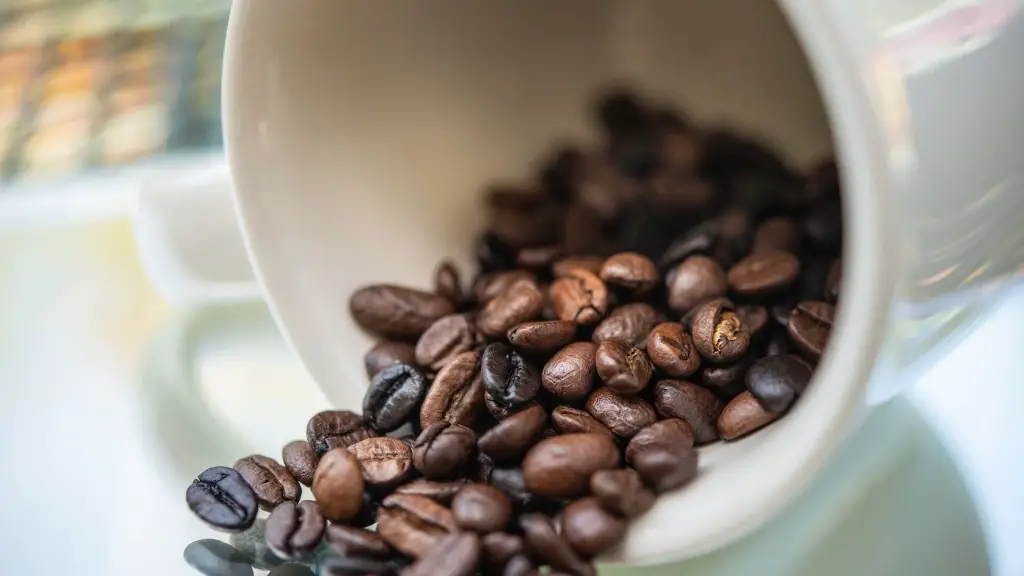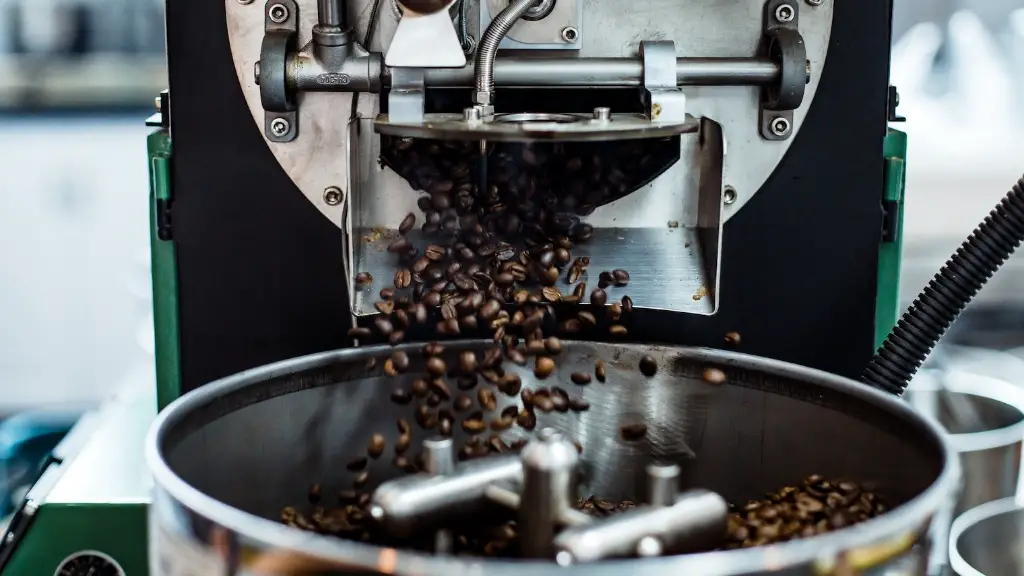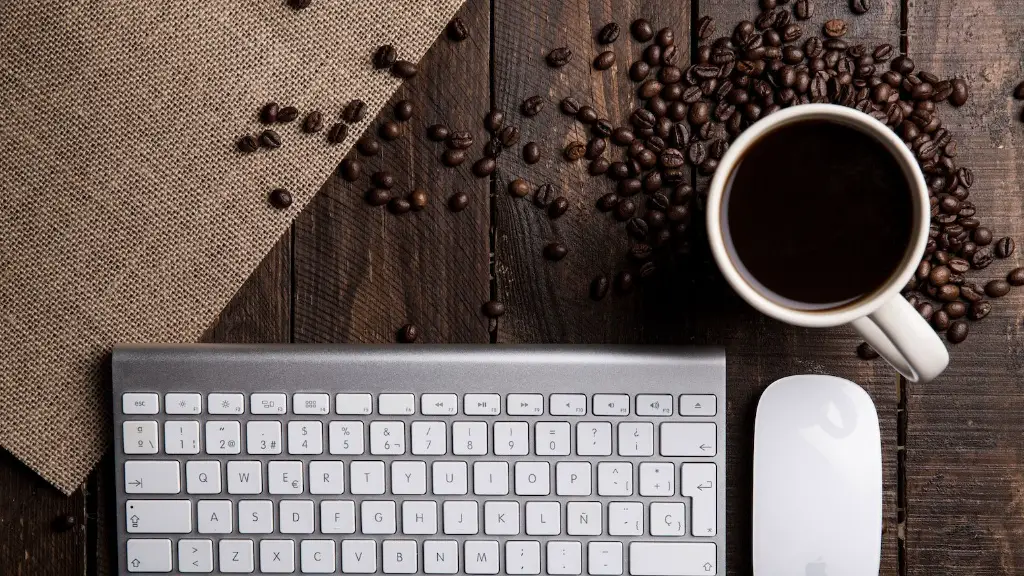Coffee drinkers can relate to the feeling of needing a quick stop at the restroom after drinking a cup of coffee. This phenomenon is well known by coffee lovers, but it begs the question: is it okay for someone to feel the urge to poop after drinking coffee?
It’s true that caffeine is a stimulant and a diuretic, and if consumed in large quantities, it can speed up your metabolism, as well as your bowels. But that doesn’t mean it’s bad for you — in fact, quite the opposite is true. While the exact cause of the urge to go isn’t known, drinking coffee is generally accepted as a healthy habit that benefits most people.
When it comes to your intestines, the answer isn’t black and white. Coffee can irritate the digestive tract, and stimulate the muscles of the colon, which can cause the urge to go. This isn’t necessarily a bad thing, as it can help keep the digestive system running smoothly. Caffeine also increases the production of gastrin and cholecystokinin, hormones in the digestive system that can trigger bowel movements.
However, it’s important to note that when it comes to coffee, not all poops are created equal. Caffeine can have different effects on different people, and some people may be more prone to having bowel movements after drinking coffee than others. Genetics, diet, and lifestyle all play a role in how your body metabolizes caffeine, and for some people, the effects can be a bit more dramatic.
A study by the National Institute of Health found that drinking coffee can increase the number of bowel movements in a day, and that drinking more than four cups of coffee can increase the risk of diarrhea. While this doesn’t mean you should limit your coffee intake to just four cups, it does mean that you should be aware of how your body responds to different types of coffee and caffeine.
While coffee can have an effect on your bowel movements, it’s still important to keep a balanced diet and get plenty of exercise to maintain your digestive system. Eating high-fiber foods, drinking plenty of water, and exercising regularly can help keep your bowels regular and reduce the risk of uncomfortable situations.
In conclusion, while coffee can certainly give you the urge to go, there’s nothing wrong with it — as long as you’re aware of how it affects you, and take the necessary steps to keep your body healthy and functioning. So yes, next time you go to pour a cup of coffee, don’t be concerned about having to make a quick run to the restroom afterwards; it’s perfectly natural!
The Impact Of Caffeine On Bowel Movements
Caffeine is an excellent way to get a jolt of energy and a refreshing cup of coffee can put you in a much better mood. However, it is also a potent stimulant and is known to affect the digestive system. It can trigger a contraction of the smooth muscles of the lower part of the colon, which can lead to the urge to have a bowel movement. In addition, caffeine triggers the production of hormones such as adrenaline and cholecystokinin that stimulate the bowels and can result in sudden urges to go.
However, not all caffeine-induced bowel movements are created equal. Caffeine can have different effects on different people, aswell as various impacts depending on its source. Studies show that drinking more than four cups of coffee can increase the chances of experiencing diarrhea. On the other hand, drinking a small to moderate amount of coffee, especially decaf, is thought to have beneficial effects on the gut, improving the movement of the intestines and reducing the chances of constipation.
When it comes to caffeine, it is important to be aware of how it affects your body and adjust your consumption accordingly. For instance, if you often experience sudden urges to poop after drinking coffee, it’s best to reduce your intake. On the other hand, if you don’t feel any impact, then you can keep drinking it without worry.
How To Minimize Unpleasant Side Effects
Although coffee can have a positive effect on your digestive health, some people may be more prone to experiencing side effects such as diarrhea or other unfavorable bowel movements. To reduce the chances of this happening, it’s important to take certain steps to keep your digestive system healthy and functioning properly.
Firstly, it’s important to maintain a balanced diet rich in dietary fiber. Foods such as lean meats, fruits, vegetables, and whole grains all help keep the bowels regular and reduce the risk of unpleasant side effects from caffeine.
In addition, it’s important to stay hydrated in order to keep your digestive tract functioning properly. Not drinking enough water can cause constipation, as well as other unpleasant bowel issues.
Finally, regular exercise can help stimulate the digestive tract and improve its overall function. So, if you’re trying to minimize unpleasant side effects from caffeine, it’s important to make sure you’re getting enough exercise.
What To Do When Experiencing Unpleasant Symptoms
While there are steps you can take to reduce the chances of experiencing unpleasant side effects from caffeine, it’s also important to know what to do when you are experiencing them. If you are experiencing sudden urges to go to the restroom or having unexpected bowel movements, it’s important to take a few steps to address the issue.
Firstly, it’s important to reduce your intake of caffeine. Cutting back or eliminating caffeine from your diet can help reduce the likelihood of these symptoms occurring in the future.
It’s also important to cut back on certain foods and drinks, such as tea, alcohol, and carbonated beverages, which can aggravate the symptoms. Finally, it’s important to add fiber to your diet to help keep your bowels regular and reduce the chances of experiencing these symptoms.
Coffee And Health Benefits
Despite its potential to cause unpleasant side effects, coffee is a popular beverage that is generally beneficial to your health. Research has shown that coffee consumption can reduce the risk of certain types of cancer, as well as reduce the risk of developing type 2 diabetes. It is also a rich source of antioxidants and can help boost energy levels and alertness.
In addition, studies have found that coffee drinkers tend to live longer than those who do not drink coffee. Coffee consumption has also been linked to improved cognitive function, better memory, and an increase in overall well-being.
However, it’s important to note that these health benefits are only found in moderate amounts of coffee. Over-consuming coffee can have negative effects on your health, including a heightened risk of anxiety, insomnia, and heartburn.
So, while coffee can have certain health benefits, it’s important to be aware of your own body and the effects of caffeine on you. By being mindful of your coffee consumption and taking certain steps to reduce the chances of unpleasant side effects, you can enjoy the many benefits of coffee without having to worry about any unpleasant consequences.





